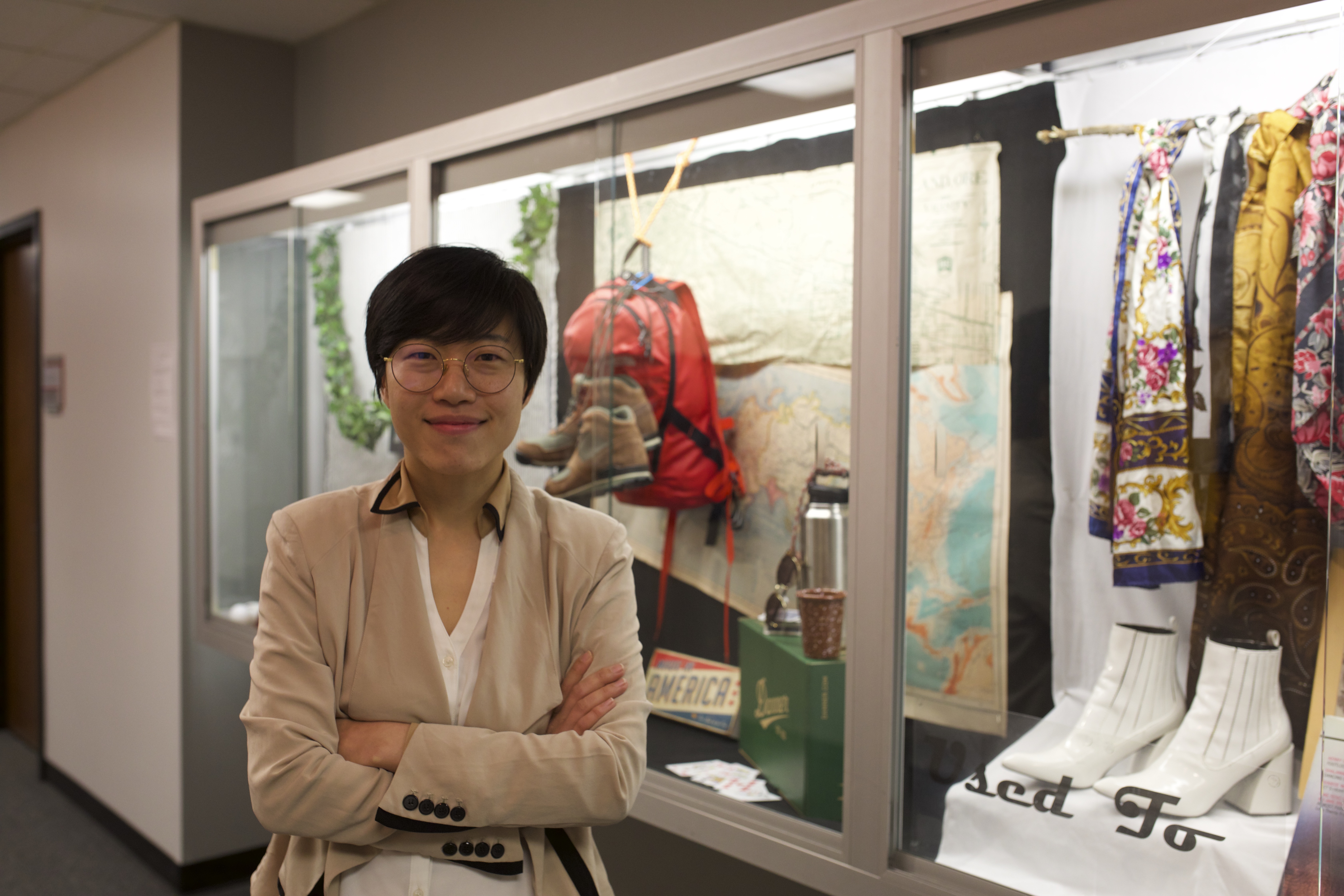
Entrepreneurship Ignites Rural Nebraska
Experiential Entrepreneurship Education for Youth and Community

Some small towns in Nebraska are seeing a decline in population, but recent programming for high school students indicates that experiential entrepreneurship education opens a door for youth to return to rural communities.
“Experiential entrepreneurship education is a hands-on method of teaching entrepreneurship to youth,” said Surin Kim, Entrepreneurship Extension specialist and assistant professor in the Department of Textiles, Merchandising & Fashion Design at the University of Nebraska–Lincoln.
Learning is not hypothetical in the experiential entrepreneurship model, but rather students solve real problems for their rural towns. Particularly, students are challenged to think like entrepreneurs in the development of products or services for local businesses.
Kim said entrepreneurship provides youth an opportunity to create something unique, as it is a vehicle for solving problems in a new way. This might even be one way to help revive rural Nebraska and its economy.
“Students who have a desire for social impact are often drawn to entrepreneurship because they have a desire to create something that can have a positive impact in society,” Kim said.
Entrepreneurship can help encourage youth to return to rural Nebraska and bring innovative businesses to communities.
Students Take the Reins, Community Gains
Experiential entrepreneurship education allows students to become agents of change for local businesses and community organizations.
An interdisciplinary faculty team developed the Youth Entrepreneurship Clinics (YEC) to provide high school students with this experience. The team includes Maria de Guzman, youth development Extension specialist and associate professor in the Department of Child, Youth, and Family Studies, Claire Nicholas and Surin Kim, assistant professors in the Textiles, Merchandising, and Fashion Design program, Andrew Larson, Nebraska 4-H Extension educator, and graduate students. The program is sponsored by Rural Futures Institute, United States Department of Agriculture (USDA), and anonymous foundation donors.
During the program, students use a hands-on business challenge approach where they analyze problems, understand potential customers, and gauge potential impact to create solutions for local businesses. By being fully immersed in the process, students gain stronger connections to the communities because they are – themselves – the decision makers.
Kim and the team work with students to determine how to serve customers beyond geographic locations as some rural businesses have greater physical distance from resources. Students create scenarios specific to the business to reach meaningful conclusions for both the business and community. Students make all decisions together and provided suggestions.
Kim said the program is beneficial for both the students and the communities. Specifically, students provide the communities with solutions and offer connections for future employment opportunities. The program also teaches students to have greater ownership in their lives as they gain an entrepreneurial mindset. An entrepreneurial mindset thinks outside of the box to create opportunities by understanding the current market situation and using existing resources to solve problems.
“Students have a stronger sense of control in experiential entrepreneurship education because they can use the entrepreneurial mindset they learned to build something from scratch in many other settings,” Kim said.
When youth understand situations, know how to identify opportunities, and learn how to create value, they begin to steer their own lives, whether or not they become business owners, Kim said. That said, an experiential entrepreneurship education does not require students to be entrepreneurs from the beginning.
“This learning approach is not about specific knowledge or skills, but rather the willingness to explore the process of entrepreneurship in a fast-paced, ever-changing society,” Kim said.
Instead, students develop critical life skills that can be applied in various careers.
A Culture that Celebrates Failure
A culture of failure takes pressure away from youth making mistakes. Creating a culture for youth that not only accepts, but also celebrates failure is a long-term investment for rural communities that want to thrive.
Kim said youth need to be comfortable to make mistakes, or fail, especially when they are trying something for the first time and building potential for a greater purpose.
“Entrepreneurs create value and create jobs for segments that have not been previously served,” Kim said.
However, students cannot be successful in creating value or creating jobs without embracing failure, according to Kim. If the culture chooses to resist failure, people are less likely to be innovative.
“Innovation is the byproduct of failure,” Kim said. People who are not scared to create something new are more likely to create stronger developments.
Trying something that has never been done before means that the chances of failure are high. Since it is probable for failure to occur, getting comfortable with that reality and learning from the failure for the next round of innovation is a key piece of the puzzle.
“I see a lot of hope in the future generation that is especially creative and dedicated to making an impact,” Kim said.
Therefore, the entrepreneurial mindset is something to be nurtured by a supportive culture when teaching entrepreneurship. This is because there is rarely one hero in the story of an entrepreneurial journey, according to Kim.
An aspiring entrepreneur may have a good idea for a business model; however, it is the culture that is comfortable with failure that encourages a student to bring the idea in an extraordinary way.
“It’s not fair to ask an individual ‘Why don’t you try?’ if we don’t have a safety net or supportive culture of trying and failing,” Kim said.
Find more information about the program: http://entrepreneurshipclinics.com/